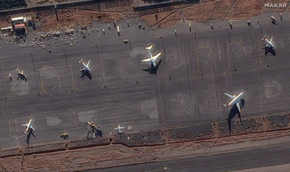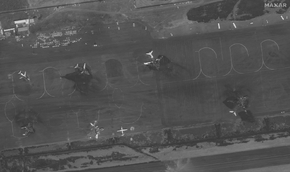On May 16th, the IDF announced commencement of Operation Gideon's Chariots - OGC.
OGC stands apart from SOI (Swords of Iron) in several key principles:
| Operation Gideon's Chariots | Operation Swords of Iron |
|---|
Maneuver across entire Gaza | Partial maneuver in select areas of Gaza |
Permanent occupation | Temporary occupations |
Gaza split in 3 | Gaza split in 2 |
Sweeping North to south maneuver | Shifting, disconnected main maneuver areas |
Shifting humanitarian zone | Single designated humanitarian zone |
Private aid distributors | UN-distributed aid |
Additionally, in a televised address to the public, PM Netanyahu laid out the objectives for OGC and terms for ending the war.
You can read the full statement in this thread:
Abbreviated version:
UN-instigated media hysteria and subsequent western nations' (e.g. UK, France, Canada, Spain) statements regarding measures against Israel, stem from official UNOCHA claim that 14,000 Palestinian babies will die within 48 hours, a claim made well over 48 hours ago which means UNOCHA claims they have already died.
There is however no indication that anti-Israel statements by said heads of states are pointed toward Israel or intended to affect Israel's prosecution of the war in any way. Basically media noise. If anything, there is an argument to be made that these statements are meant to indirectly encourage Israel to initiate OGC, by pressuring Hamas out of negotiating a surrender and release of hostages.
Hamas certainly appreciated those statements
We can already see first signs of the north-to-south maneuver to come:
It is worth stating that as of right now, May 22nd, the ground element of OGC has yet to commence. 5 divisions were already called up for this task, but for now there are medium intensity airstrikes in Gaza in preparation.
OGC had an additional intended effect of pressuring Hamas into a deal that would see all hostages released: A condition for the ending of the war in Gaza. But talks collapsed yet again.
As we're headed into a new round of war, said to be more intense than SOI, the matter of humanitarian aid is generating a lot of media noise. But this only clouds the perhaps centrality of said humanitarian aid in determining the effectiveness of war efforts.
As an interim measure, the IDF is sending in aid in the previous model, where the UN distributes the aid to Hamas.
COGAT report: 100 trucks enter Gaza.
In the longer term and per OGC parameters, the aid will be distributed by private contractors, from 4 pre-set locations in southern Gaza (Rafah area). The main goals are to drive the population to the south, and to ensure Hamas doesn't get their hands on the aid, but I seriously doubt the latter is feasible in the explained future model.
The humanitarian aid is Hamas's lifeline. Through it, it manages to pay salaries, recruit, and sustain combat operations.
But perhaps a greater war goal of Israel's is permanent occupation of Gaza, preferably with annexation of 2/3rds of it for strategic depth from major cities like Ashkelon and Ashdod.
And as we know, humanitarian affairs must be coordinated by an occupying power. So humanitarian aid must come in in one way or another. But it must also not reach Hamas, otherwise they cannot be eradicated in their current form.
Sri Lanka defeated the Tamil Tigers by completely choking them out. Along the way however they also killed a lot of their own civilians and there was the unique circumstance that the Tamil Tigers were hated by the local population. Almost none of that is applicable to Hamas, and obviously to choke out Hamas there's a need to address its external operations.
Unable to affect other nations policies, what Israel can do in Gaza to maximize pressure on Hamas:
- Food aid quickly perishable - not something you can store to sustain combat operations, but fully relevant to a civilian population.
- Maximum supervision on aid distribution including personal allocations and screening, preferably with food aid consumed in designated guarded dining areas and not to be taken home.
- No entry of war materiel such as:
- fuel, generators, metals, plastics, vehicles, cement, and work tools.
- all of which are needed for the sustainment of combat operations and production of weaponry.
- Power generation can be provided on a by case basis for specific needs such as local medicine, if it were under proper supervision.
- Annex large parts of Gaza and flatten them.
- The purpose is dual:
- Exact a permanent price for the war thus increasing pressure.
- Create defensible strategic depth.
- Replace the aid model with a standard economical model:
- Industry is set up in Rafah. Standard salaries.
- Food is purchasable.
- Mutual benefit of increased Palestinian purchasing power, and boost to Israeli economy.
- Basically a return to the pre-October 7th work model, except Palestinians won't cross into Israeli territory again.



